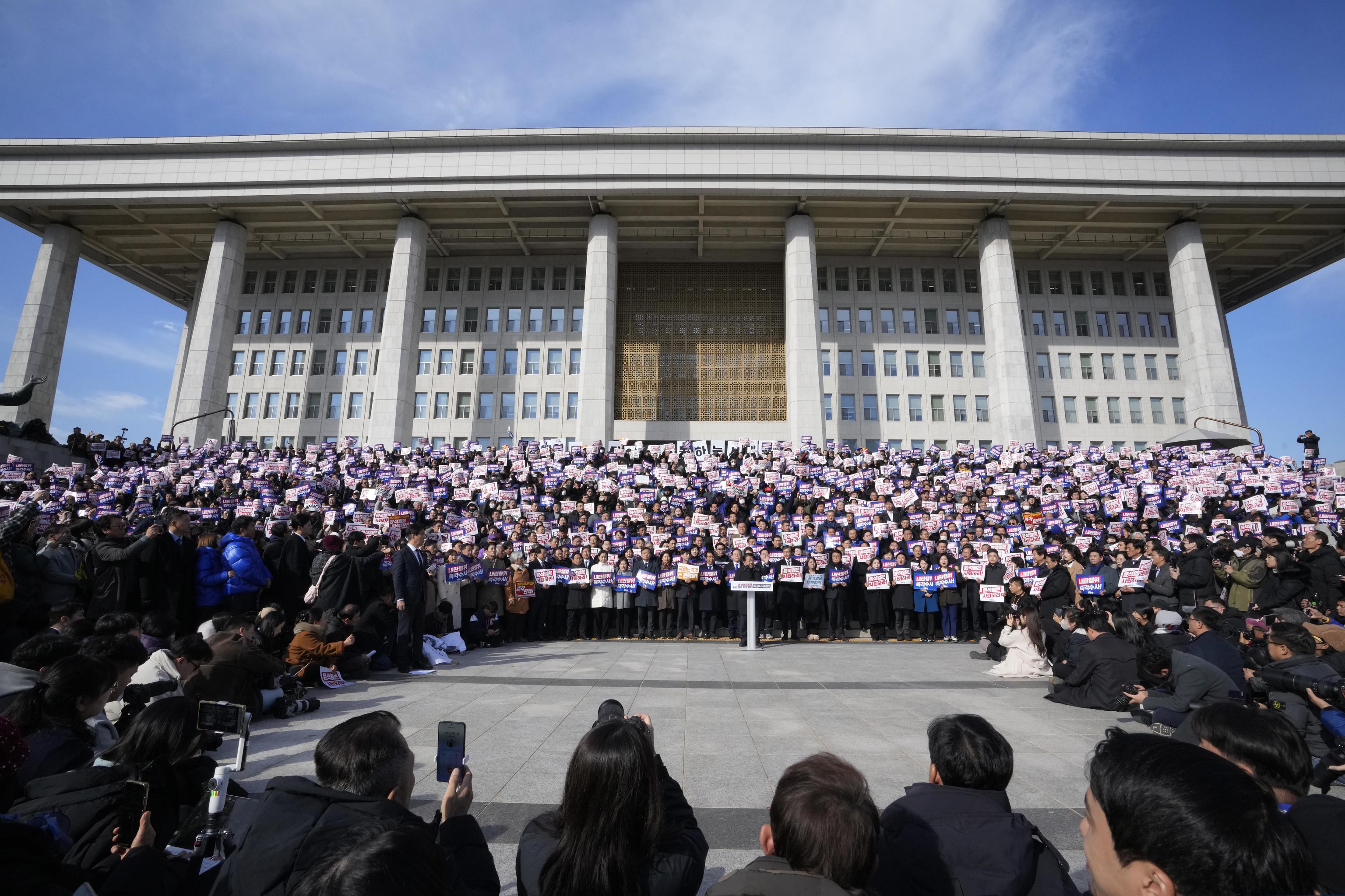The President of South Korea, the conservative Yoon Suk Yeol, has confirmed that he is lifting the "emergency martial law" that he had announced on television early in the night, after Parliament revolted against the surprising decision and voted against it during the early hours. Martial law lasted for five and a half hours. The next step is a mass strike calling for his removal, according to the unions.
The South Korean leader had justified the measure by accusing the opposition of sympathizing with North Korea, conspiring to oust him, and paralyzing his Government by controlling the Parliament. The 190 present deputies in the Chamber during the night (out of the 300 that make it up) voted against the law. The troops, who entered just after the presidential announcement, withdrew from Parliament after the legislators' blockade.
Yoon Suk Yeol, the sharp prosecutor who locked up corrupt politicians and who has shaken Seoul's democracy with martial law Pyongyang-style
The President of the National Assembly, Woo Won-Shik, officially notified the outcome of the vote to the president's office and the Ministry of Defense, but Yoon took time to react. The country's Constitution orders the president to lift martial law if Parliament says so. The ruling party itself urged him to do so quickly. The opposition leader, Lee Jae-Myung, stated that anyone acting under the president's orders would be breaking the law because martial law was not valid.
Hundreds of protesters took to the streets of Seoul and gathered at the doors of Parliament. Some of them tried to enter the building, something that was prevented by security forces, as shown in images broadcast by local channels. "End martial law! End martial law!", chanted the protesters.
The martial law decreed by Yoon was not directly related to an imminent threat from the North. It was an internal political battle. Yoon blamed the opposition for attempting a rebellion, in collusion with Pyongyang, to overthrow him.
During his televised announcement, Yoon promised to "eradicate pro-North forces and protect the constitutional democratic order." The leader also linked the opposition to "anti-state activities". Relying on martial law (not used since the 80s), which grants extraordinary powers to the Executive, Yoon, in a move more typical of his authoritarian neighbor, tried to bypass the opposition blockade in Parliament.
The Yonhap news agency quoted South Korean military officials - the armed forces were at the government's disposal - explaining that legislative activities would be paralyzed and the media would be under the control of a "martial law command." Martial law also prohibits public protests.
"To safeguard a liberal South Korea from the threats posed by the communist forces of North Korea and eliminate anti-state elements, I hereby declare a state of emergency martial law," said Yoon. "This is an unavoidable measure to ensure the freedom and security of the people, as well as to guarantee the nation's sustainability in the face of the unrest caused by these subversive and anti-state elements."
Yoon (63 years old), from the People Power Party (PPP), has been at the helm of Asian democracy for over two and a half years, since narrowly winning the elections against the then ruling Democratic Party of Korea (DPK), a liberal party.
South Korean media point out that Yoon's approval rating has plummeted in recent months, while the opposition has stalled his budget bills for next year.
"The National Assembly [Parliament] has completely cut essential budgets for national operations, drug-related crime prevention, and public safety, undermining the basic functions of the State," added the president in his address. "This has left our citizens in a state of chaos, with the nation turning into a paradise for drugs and public safety declining."
His political rivals have pressed Yoon this year by exposing several scandals surrounding the figure of the first lady, businesswoman Kim Keon-hee, accused of inflating her resume, plagiarizing her doctoral thesis, and accepting a Dior handbag as a gift. The anti-corruption agency then said it would investigate all allegations against Kim, who was already implicated in another corruption investigation for alleged stock price manipulations at Deutsch Motors, a BMW car dealership, between 2009 and 2012.
Yoon's rise to power caused a rupture with the previous president's approach, Moon Jae-in, to ease tensions with Pyongyang. During these years, the leader has strengthened a solid military alliance with the United States to address the nuclear threats from Kim Jong-un's regime.
Yoon spent 27 years as a state prosecutor and played a key role in uncovering corruption cases that led to the imprisonment of two former presidents.
